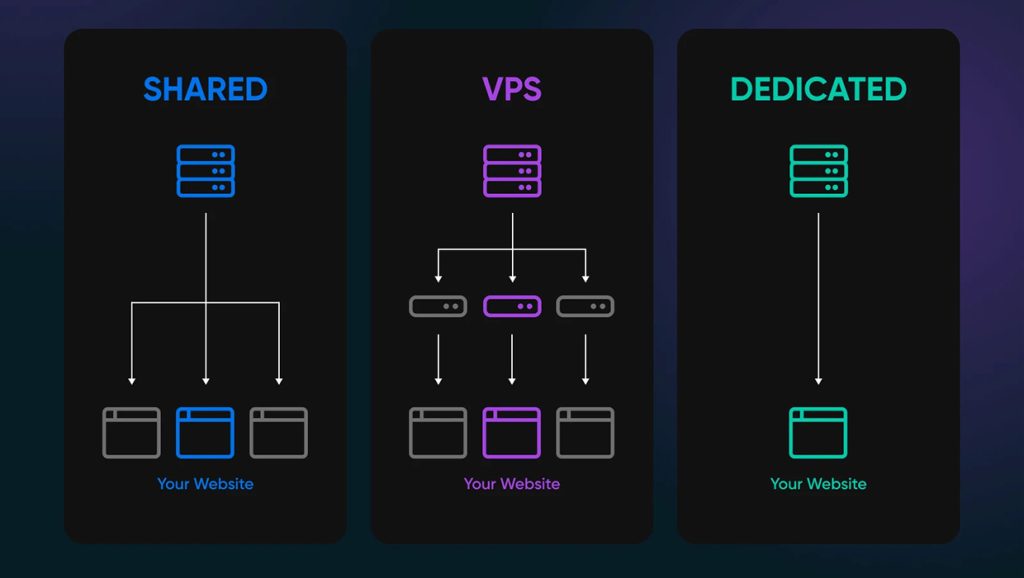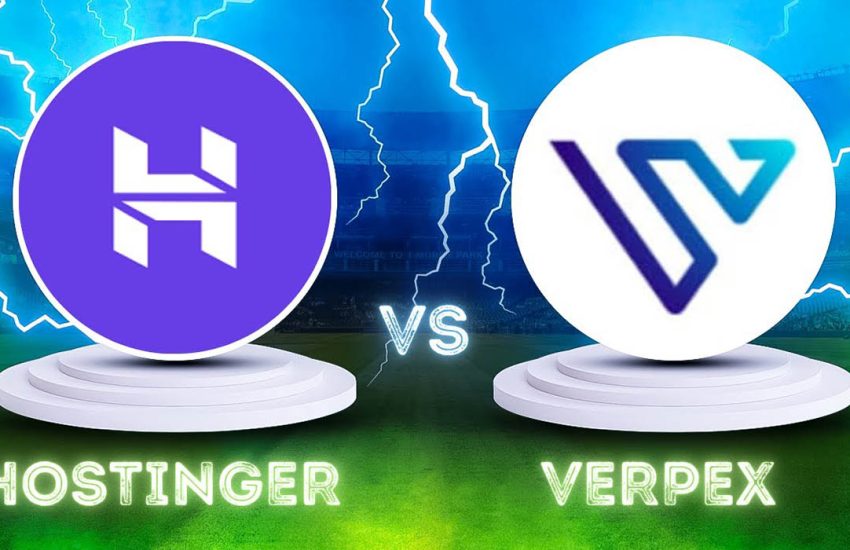Hosting and Servers: Letting Technology Truly Work for Me
Looking back at the first time I encountered servers and hosting services, I had no idea it would change the way I work. At that time, I wanted to handle everything myself—website deployment, database maintenance, server security, and even managing traffic surges. Every task had to be handled personally. I thought having control over the server meant freedom, but in reality, this freedom was more like an invisible burden.
Gazelle.com – Buy Smart. Sell Easy.
Trade in your old phone, tablet, or laptop at Gazelle.com and get instant cash offers.
Or shop certified pre-owned devices that look and work like new — all fully tested and guaranteed.
Simple. Secure. Sustainable.
Every server crash kept me awake at night; every database error made me almost give up on my website. I realized that I didn’t need to fully control all the technical details; what I needed was a solution I could reliably depend on. That solution was hosting services.
I. The World of Servers and My First Experience
A server is the core device that supports the operation of websites, applications, and data. At first, I thought of servers as just “high-performance computers” used to store website files and databases. But after working with them, I discovered that servers involve hardware performance, operating system configuration, network security, and traffic management.
The first time I tried to deploy a server myself, I chose a local VPS. Setting up the environment, installing software, and adjusting parameters were all challenging. While this brought a sense of achievement, it also carried immense pressure. Even a slight increase in traffic caused the server to slow down or crash, forcing me to constantly troubleshoot code and optimize databases. That chaotic feeling made me reconsider: did I really need to personally handle every technical detail?
It was then that I first learned about hosting services. Simply put, hosting means entrusting server management to professionals who handle hardware, environment setup, system maintenance, and security, while I can focus on core tasks such as content, products, or applications.
II. What Hosting Services Solve
I chose hosting services because they solved several of my most pressing problems.
1. High Maintenance Pressure
Previously, every operating system upgrade or patch took me hours, sometimes half a day. Any mistake could bring the website down. Hosting services automate these processes, applying updates and security patches automatically, leaving me to only verify the results.
2. High Security Risks
Managing your own server means all security responsibilities fall on you. Hackers, brute-force attacks, and data leaks need to be handled personally. Hosting platforms provide multi-layered security, including firewalls, DDoS protection, real-time monitoring, and automatic backups, relieving me from constant security anxiety.
3. Unpredictable Performance
During traffic spikes, my server could barely handle the load. Cloud-based hosting platforms automatically adjust resources to ensure stability, even during sudden surges.
4. High Time Costs
I used to spend at least two hours a day maintaining the server, fixing issues, and clearing logs. Hosting services automate these repetitive tasks, allowing me to focus on content creation and product optimization, significantly improving efficiency.

III. My Actual Experience with Hosting Servers
I chose a cloud hosting solution, which provides hardware and system support while automatically managing databases and caches. The first time I migrated my website to the hosting platform, there were almost no technical obstacles. The system automatically deployed files, migrated the database, installed SSL certificates, and configured CDN acceleration—I barely had to intervene.
On the first day after migration, I observed the website’s performance. Pages that previously took 3 seconds or longer to load now loaded in under a second. During traffic peaks, the site remained smooth, and database query response times improved significantly. This immediate improvement allowed me to truly appreciate the value of hosting.
More importantly, I no longer had to constantly monitor the backend. The system automatically tracks server status, repairing issues or sending notifications when anomalies occur. I can focus on creating content without worrying about technical interruptions.
IV. How Hosting Changed My Workflow
After using hosting and servers, my daily workflow has changed significantly:
1. Focus on Content, Not Maintenance
Previously, half of my workday was spent on technical maintenance. Now, hosting handles all the tedious tasks automatically, allowing me to focus on website optimization, content creation, and user experience improvement.
2. Improved Website Stability and Performance
Real-time monitoring and resource allocation from hosting platforms ensure stable operation. Even sudden traffic spikes are handled smoothly. The stressful server downtime I used to worry about has nearly disappeared.
3. Enhanced Security
Built-in firewalls, DDoS protection, and malware defenses eliminate concerns about data breaches or hacker attacks. Automatic backups ensure that data can be restored at any time, usually within minutes.
4. Cost Control
Many think hosting services are expensive, but compared to self-managing a server—considering time, technical learning, and risk—the costs are more predictable and easier to budget. I know exactly what I spend each month while enjoying high performance and security.
V. Different Types of Hosting and Server Scenarios
During my usage, I learned that different needs correspond to different hosting types:
- Shared Hosting: Low cost, suitable for personal sites and small blogs, but with limited performance.
- VPS Hosting (Virtual Private Server): Balanced performance and cost, suitable for small to medium websites or applications.
- Cloud Hosting: Highly flexible and scalable, suitable for e-commerce, content creators, and app developers.
- Dedicated Hosting: Exclusive hardware resources, strong performance, suitable for large projects or high-traffic sites.
- Managed Cloud Hosting: Ideal for those who want convenience and high performance, providing fully automated management.
I currently use managed cloud hosting, which not only manages the server and database but also optimizes caching, accelerates content via CDN, and manages SSL certificates. All technical details are handled by the system, allowing me to focus entirely on operations and content.

VI. Technical Considerations for Servers and Hosting
When choosing hosting and servers, I focus on several key factors:
- Hardware Performance: CPU, memory, and storage type directly affect website performance.
- Network Bandwidth: High bandwidth ensures responsiveness during traffic peaks.
- Security Mechanisms: Firewalls, DDoS protection, automatic backups, and encryption are essential.
- Scalability: Ability to automatically allocate resources in response to traffic surges.
- Support and Customer Service: 24/7 technical support ensures timely problem resolution.
Compared to self-managed servers, hosting services have clear advantages: automation, real-time monitoring, and professional maintenance allow me to achieve maximum results with minimal effort.
VII. Future Trends in Hosting and Servers
I believe that hosting and servers will become increasingly intelligent in the future:
- Automated Management: Intelligent scheduling and automatic optimization will maintain peak performance.
- AI Monitoring: Artificial intelligence will predict potential issues and resolve them proactively.
- Elastic Scaling: Cloud hosting allows resources to automatically scale up or down based on traffic, ensuring stability and efficiency.
- Integration into Daily Life: In the future, smart homes, personal data, and applications may all rely on hosting platforms, allowing technology to serve human life more effectively.
This trend means that technology will increasingly act as an “invisible assistant,” handling complex tasks in the background while I focus my time and energy on creativity and thinking.
Having experienced the anxiety of maintaining servers manually, I deeply understand the importance of hosting and professional server management. It not only improves efficiency, stability, and security but also frees me from technical minutiae.The combination of hosting and servers allows me to focus on core work without being controlled by technology. They are not cold tools but reliable forces that let technology truly work for me.
Every time I log into the dashboard and see smooth-running systems, automatic backups, and active security measures, I feel reassured. Hosting and servers make my work more efficient and my life lighter. The purpose of technology is not just to run programs—it is to support my work and creativity. Hosting and servers are my best partners for stress-free creation.


